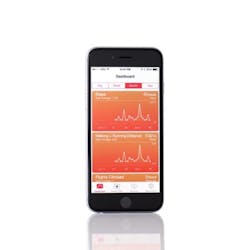Apple continues to roll out its offerings for healthcare organizations, revealing its latest invention called ResearchKit, allowing users to participate in clinical trials.
ResearchKit builds off HealthKit, which was a health platform Apple launched last year that aimed to connect personally-generated health data and clinical data. HealthKit allowed users to track their own data, whereas the latest software framework, built into all iOS devices, aims to allow users to participate in clinical research trials. The data used for this app will be sent to healthcare provider organizations that launch the apps. With ResearchKit, Apple says it will turn iOS devices into diagnosis devices.
Apple, during an event for the press, announced a few initial partnerships with major healthcare provider organizations to use ResearchKit, including Icahn School of Medicine at Mount Sinai, Penn Medicine, Dana-Farber Cancer Institute, Massachusetts General Hospital, Stanford Hospital, and more. Five Parkinson’s Disease-specific apps were launched with the release of ResearchKit this week, but next month is when the open-source platform goes live.
As part of the announcement, Apple’s Jeff Williams, senior vice president of operations, promised that the tech giant would not be able to see users’ data. Before the announcement, Williams said the methods for recruiting for research trials are difficult and this will expose those research efforts to millions of Apple users.
In the past year, many notable healthcare organizations, including Stanford Medicine, Cleveland Clinic, and EHR vendors like Epic, have all partnered with Apple, since the launch of HealthKit.


